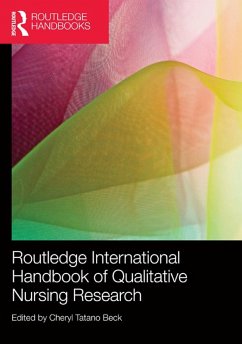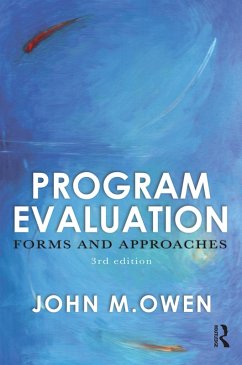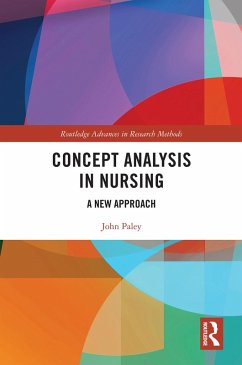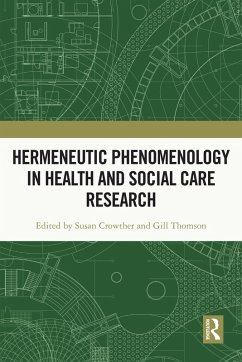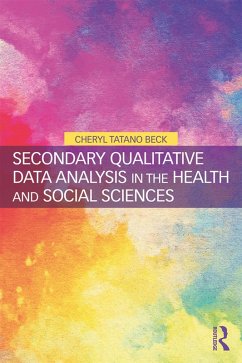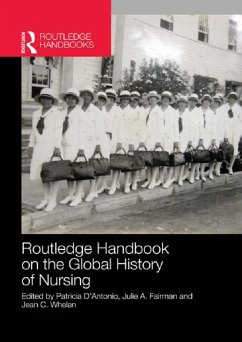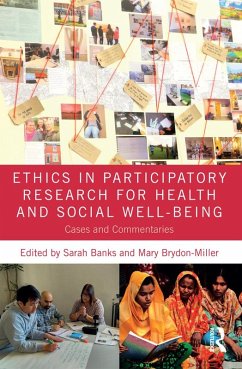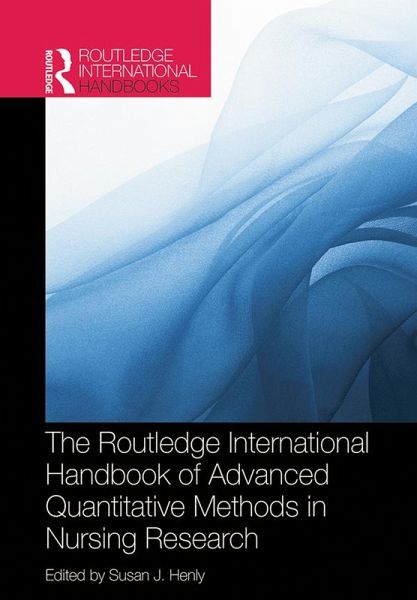
Routledge International Handbook of Advanced Quantitative Methods in Nursing Research (eBook, ePUB)

PAYBACK Punkte
26 °P sammeln!
Designed to support global development of nursing science, the Routledge International Handbook of Advanced Quantitative Methods in Nursing Research provides a new, comprehensive, and authoritative treatment of advanced quantitative methods for nursing research.Incorporating past approaches that have served as the foundation for the science, this cutting edge book also explores emerging approaches that will shape its future. Divided into six parts, it covers:-the domain of nursing science- measurement-classical test theory, IRT, clinimetrics, behavioral observation, biophysical measurement-mod...
Designed to support global development of nursing science, the Routledge International Handbook of Advanced Quantitative Methods in Nursing Research provides a new, comprehensive, and authoritative treatment of advanced quantitative methods for nursing research.
Incorporating past approaches that have served as the foundation for the science, this cutting edge book also explores emerging approaches that will shape its future. Divided into six parts, it covers:
-the domain of nursing science
- measurement-classical test theory, IRT, clinimetrics, behavioral observation, biophysical measurement
-models for prediction and explanation-SEM, general growth mixture models, hierarchical models, analysis of dynamic systems
-intervention research-theory-based interventions, causality, third variables, pilot studies, quasi-experimental design, joint models for longitudinal data and time to event
-e-science-DIKW paradigm, big data, data mining, omics, FMRI
-special topics-comparative effectiveness and meta-analysis, patient safety, economics research in nursing, mixed methods, global research dissemination
Written by a distinguished group of international nursing scientists, scientists from related fields, and methodologists, the Handbook is the ideal reference for everyone involved in nursing science, whether they are graduate students, academics, editors and reviewers, or clinical investigators.
Incorporating past approaches that have served as the foundation for the science, this cutting edge book also explores emerging approaches that will shape its future. Divided into six parts, it covers:
-the domain of nursing science
- measurement-classical test theory, IRT, clinimetrics, behavioral observation, biophysical measurement
-models for prediction and explanation-SEM, general growth mixture models, hierarchical models, analysis of dynamic systems
-intervention research-theory-based interventions, causality, third variables, pilot studies, quasi-experimental design, joint models for longitudinal data and time to event
-e-science-DIKW paradigm, big data, data mining, omics, FMRI
-special topics-comparative effectiveness and meta-analysis, patient safety, economics research in nursing, mixed methods, global research dissemination
Written by a distinguished group of international nursing scientists, scientists from related fields, and methodologists, the Handbook is the ideal reference for everyone involved in nursing science, whether they are graduate students, academics, editors and reviewers, or clinical investigators.
Dieser Download kann aus rechtlichen Gründen nur mit Rechnungsadresse in A, B, BG, CY, CZ, D, DK, EW, E, FIN, F, GR, HR, H, IRL, I, LT, L, LR, M, NL, PL, P, R, S, SLO, SK ausgeliefert werden.





